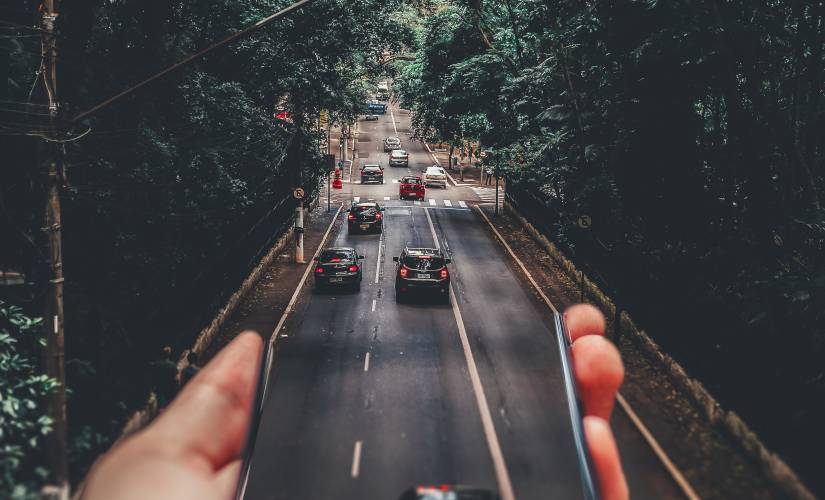
Discussion: You’ve heard of product design, graphic design, fashion design, interior design, etc, but perhaps not Experience Design, which is the invisible frontier of human engagement. UX (“User Experience”) design has been around for a long time to understand how humans can best engage with onscreen potentials, but mobile experience design is considerably deeper and more exciting. As mobile technologies continue to get smaller and more capable, they are beginning to disappear from our physical awareness without letting go of our attention – in fact, they are cleverly meshing our physical and digital worlds into an enhanced form of attention. This is possible because mobile media can be context aware: they are our first media to be about us – where we are, who we’re with, etc, etc.
523 Inspiration: Experience Design is what mobile technologies were born to enable. All of our other media have only been able to delivery monolithic linear narratives. The opportunity to author open, social, synchronous, real-world narratives that weave the web into everyday life is unliteral & unnatural for us. Welcome to the new natural, if you’re bold enough to author it. The opportunities for learning are breathtaking. So Experience Design is not about optimizing the usability of a device or an application, it is about optimizing the usefulness of the real world around you. You might think of it as the programming language for an AI that will eventually be your very personal agent as you go about your daily existence: how can you seamlessly integrate ambient contexts and affordances of location, time, season, the people you’re with, the things you enjoy, the things you are most interested in, your immediate objectives, your health, etc, into an augmented ongoing experience of life? All of this is possible, and inevitable, through the magic of that device in your hand, so how do we make it happen?
I’m interested in learning more about how user experience design can help to inform and improve the development of mobile learning experiences. A well-designed UX can greatly enhance learning satisfaction and engagement, and knowledge retention.
In particular, one aspect of UX design in mobile learning that I’m keen on learning more about is “usability.” A user-friendly interface that is easy to navigate and understand can significantly impact how learners perceive and interact with the learning material. I’d be interested in understanding how to better conduct UX research and identifying learner needs/preferences to create more intuitive learning experiences.
In reviewing the discussion content, what stood out to me about UX design in mobile learning is that it goes beyond usability to consider the broader concept of experience design. Experience design is not just about optimizing the usability of a device or an application; it is about optimizing the usefulness of the real world around you. In the context of mobile learning, this means creating experiences that seamlessly integrate with learners’ everyday lives, leveraging the capabilities of mobile devices to provide learning opportunities that are relevant, easy/convenient to use, and impactful.
I remember first coming across this term in ETEC 522 and the notion that devices and platforms that consider Experience Design need to reduce their “silo” approach to building tools and instead pivot to an idea that what they are building increases the value of a larger ecosystem.
“Optimizing the usefulness of the real world around you” is a striking description. I think as mobile technologies become more and more capable and our engagement with them transforms over time, educational tools will need to give consideration how this experience occurs to remain authentic. If designers of devices and apps within education start with the idea that the purpose of these tools is to contribute to larger ecosystems to serve the world around us rather than single function tools, then I think this is a very promising frontier.
I don’t know much about Experience Design, but after reading the discussion and inspiration, I’m eager to know and explore more. From what I can see, the concept of Experience Design fundamentally reshapes our interaction with technology, emphasizing its integration into the fabric of our daily routines. As a language teacher, I always want to refer back to how I could use it in my own classroom to help students develop their language skills. Experience Design, whether it’s through gamified mobile apps, virtual reality simulations, or interactive storytelling platforms, could offer a real sense of personalized learning.